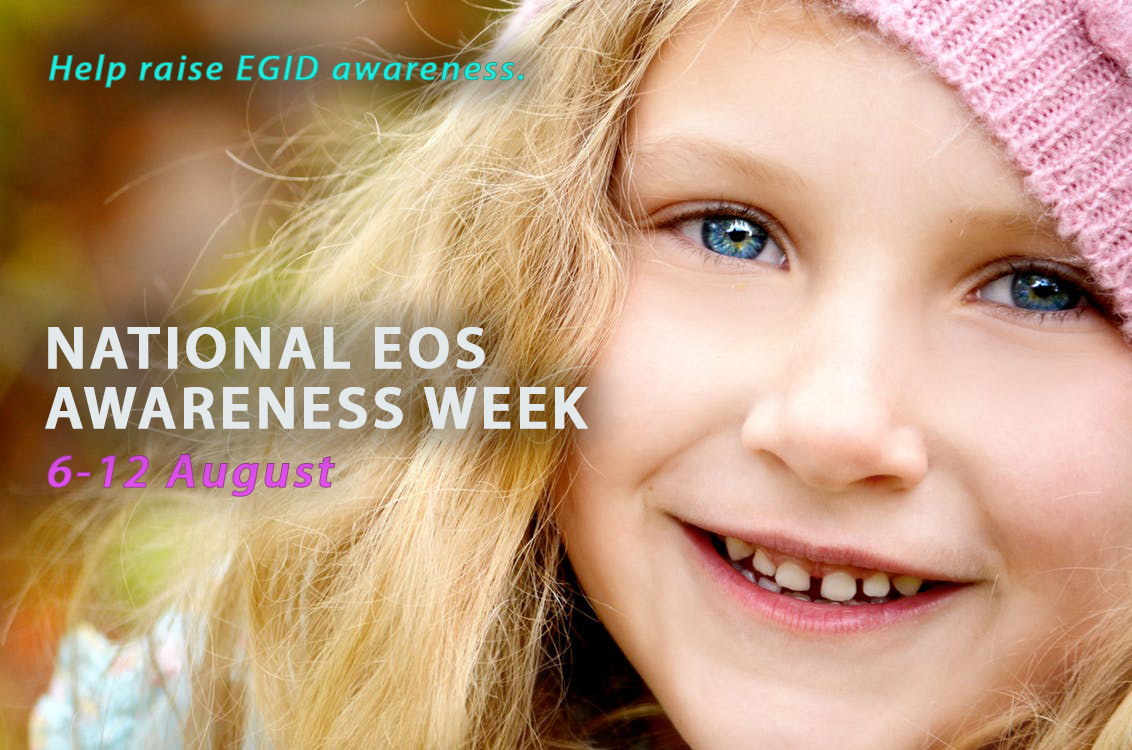National EOS Awareness Week (6-12 August)
August 8 2017
Eosinophilic gastrointestinal disorders (EGIDs) occur when eosinophils, a type of white blood cell, are found in above normal amounts within the gastrointestinal tract. The eosinophils attack foods (or airborne allergens) creating an allergic response and cause inflammation wherever they may gather. Having a large number of these white blood cells can make people very sick. Sometimes they can feel nauseous, or they can have stomach and chest pain, heartburn, it can hurt to swallow, they feel life vomiting or get food stuck in their throats.
EGIDs are rare diseases. The most common type of EGID is Eosinophilic oesophagitis (EoE) and it affects as many as 1 in 2,000 individuals, however current Australian prevalence figures are unknown. People with EoE commonly have other allergic diseases such as asthma or eczema. At present, the only way to diagnose EGID is through biopsies from an endoscopy and/or colonoscopy.
The most common symptoms of EGIDs are the following:
- Feeding difficulty (such as needing to puree foods, being slow to chew foods, avoidance of certain foods)
- Poor appetite
- Dysphagia (difficulty in swallowing foods and/or requiring a drink after eating)
- Nausea, persistent vomiting and retching
- Reflux that does not respond to anti-acid medication
- Abdominal or chest pain
- Failure to thrive (failure to put on or loss of weight)
- Food impaction
- Difficulty sleeping
This week (6-12 August) is National EOS Awareness Week. Join us in helping raise awareness to both the public and medical community about eosinophilic gastrointestinal disorders (EGIDs).
The more people who know and learn about EGIDs, the better understanding our community will have for those living with them. It can also help those who may not have a diagnosis but are experiencing similar symptoms to be able to ask their doctor about them.
To know more about EGID, visit EOS Aware. If you think you or someone you love has EGID, call to schedule an appointment with one of our medical professionals at 03 5229 5192 (Myers Street Family Medical Practice) or 03 5241 6129 (The Cottage Medical Centre).
